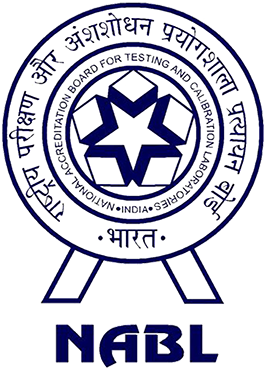Beta 2 Glycoprotein panel
A beta-2 glycoprotein I (β2GPI) test measures the levels of antibodies (IgA, IgG, and IgM) against beta-2 glycoprotein I in the blood. These antibodies are associated with antiphospholipid syndrome (APS), an autoimmune disorder that increases the risk of blood clots.
- **IgA**: Often associated with mucosal immunity, its presence can indicate certain autoimmune responses.
- **IgG**: The most common antibody, often indicating long-term immunity or chronic conditions.
- **IgM**: Indicates a primary or early immune response.
Elevated levels of these antibodies may suggest APS or related autoimmune disorders, which can lead to complications such as deep vein thrombosis, stroke, or recurrent miscarriages.
**Beta-2 Glycoprotein I (β2GPI) Antibodies: IgG, IgA, and IgM**
Beta-2 glycoprotein I (β2GPI) is a plasma protein that plays a crucial role in the regulation of coagulation and the immune response. The presence of antibodies against β2GPI—specifically IgG, IgA, and IgM—is significant in the diagnosis of antiphospholipid syndrome (APS), an autoimmune disorder characterized by an increased risk of blood clots (thrombosis) and pregnancy-related complications.
**1. **IgG Antibodies**:
IgG antibodies against β2GPI are the most commonly detected in patients with APS. IgG is the most abundant type of antibody in the blood and is crucial for long-term protection against pathogens. The presence of β2GPI IgG antibodies indicates an autoimmune response where the immune system mistakenly targets β2GPI. This can lead to the formation of blood clots in veins and arteries, resulting in conditions such as deep vein thrombosis (DVT), pulmonary embolism, and stroke. In pregnant women, it can cause recurrent miscarriages, stillbirths, and other pregnancy complications.
**2. **IgA Antibodies**:
IgA antibodies are less commonly associated with APS but still play a significant role. IgA is primarily found in mucous membranes lining the respiratory and gastrointestinal tracts. The detection of β2GPI IgA antibodies can indicate a mucosal immune response and is considered in the diagnosis of APS, particularly in patients who do not have IgG or IgM antibodies. Elevated levels of β2GPI IgA can contribute to thrombosis and other clinical manifestations of APS.
**3. **IgM Antibodies**:
IgM antibodies are the first type of antibody produced by the immune system in response to an infection. They are usually detected in the early stages of an immune response. The presence of β2GPI IgM antibodies can indicate an acute or recent autoimmune response. Although IgM antibodies are less specific than IgG for APS, their detection can still provide valuable information in the diagnosis and management of the disorder.
**Clinical Significance**:
The measurement of β2GPI antibodies (IgG, IgA, and IgM) is part of the diagnostic criteria for APS. Patients with APS may present with a range of symptoms including unexplained blood clots, recurrent pregnancy loss, and certain neurological manifestations. The detection of these antibodies helps in confirming the diagnosis and guiding treatment strategies, which may include anticoagulants to prevent clot formation and other supportive therapies.
In summary, β2GPI antibodies (IgG, IgA, and IgM) are critical markers in the diagnosis and management of antiphospholipid syndrome. Their presence indicates an autoimmune process that increases the risk of thrombosis and other related complications.
We provide blood tests in Noida, Gurgaon,
Faridabad,
Delhi,
Indirapuram, Ghaziabad, Greater Noida, and Greater Noida Extension(west).
















